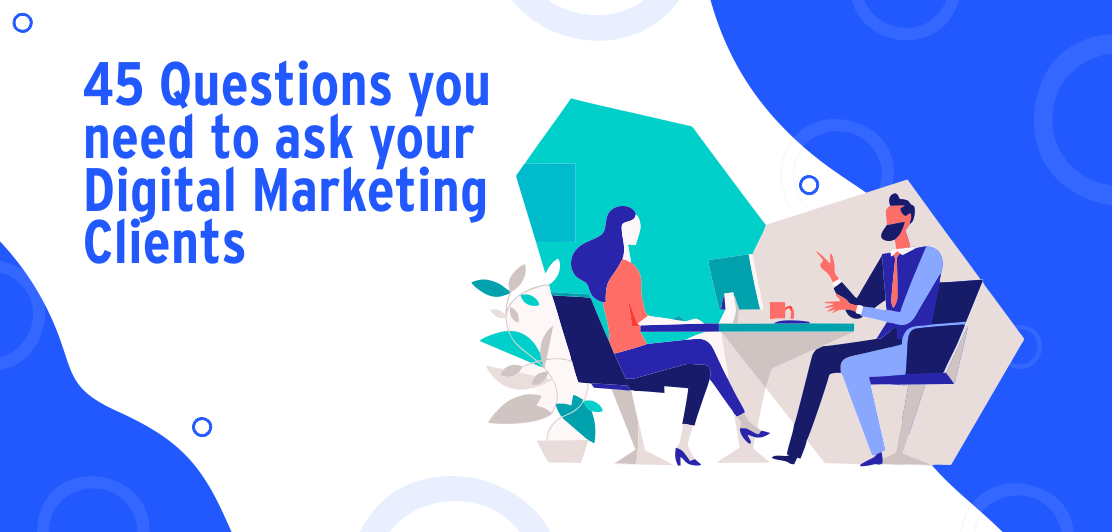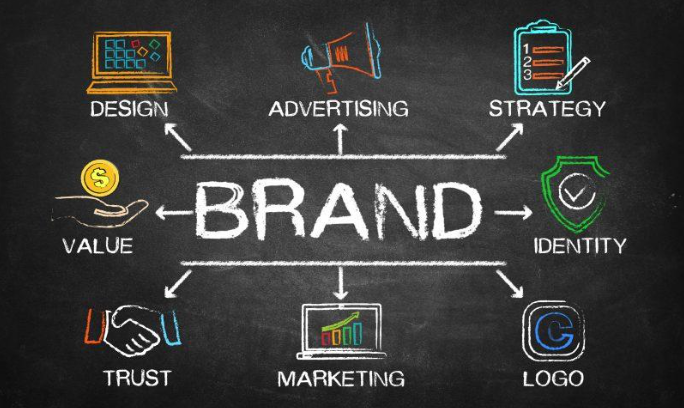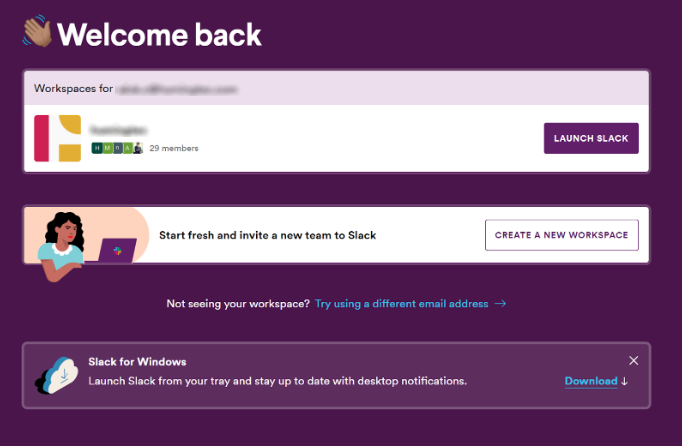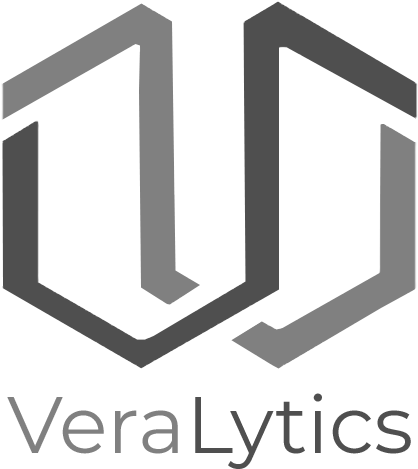
45 Questions you need to ask your Digital Marketing Clients
Hi there, Gokarters!
Time for Lesson Number 1.
Where do we start? Even while writing this first blog for the website, we are faced with the same dilemma “Where do we start?”
As a digital marketing agency, generating a steady stream of leads and potential clients are your top priority. Generating leads and conversion are highly discussed topics among all marketing agencies. A query as simple as “How to Generate Leads for Business” will fetch over 2 million websites on Google in less than a second. And then, 2 million more on “How to Convert them”?
While you may get over this phase with some help from an expert or some in-house last-minute all-nighter shift (definitely with the help of some gazillion gallons of Coffee), what is to follow is surely the most difficult phase of the whole business journey!
Onboarding the Client and Setting Up Expectations.
This is followed by Executing the Deliverables, Review and Report Phases.

The more hassle-free, transparent and smooth your client onboarding process is, the higher the retention rate, improved client satisfaction, and recommendations from clients. Meaning more ROI and a highly pleasurable client relationship & experience. Businesses, agencies and startups must ensure their onboarding process is streamlined and defined at all stages.
What happens when your Onboarding process isn’t smooth?
It’s like going out on a date-night unprepared not knowing what to speak. Awkward silences, checking on the time repeatedly, a sense of discomfort, confusion on who’s paying for the dinner and an excruciating heartbreak in the end. With an inefficient Onboarding Process for your Digital Marketing Agency, your client relationship might just turn out the same.
Consider Onboarding as your Second First Impression. While your initial point of contact acts as an introduction, your client onboarding reflects your workflow management throughout the business timeline. Get it right and you get a client for a lifetime. Get it wrong, learn and rise fast. And like your date night, you want to be more spontaneous and less scripted.
Onboarding not only helps with Second First Impression but also establishes the very needed client relationship that can affect your retention rate.

Going back to the dating analogy, imagine if you decide to fall into a relationship without establishing expectations. After some time, you will be back again, doing the same thing all over again, ie. dating or in our case, looking for new prospects. Onboarding must ensure you define measurable and quantifiable expectations apart from the non-measurable ones. The approach is to find a common ground between what the clients expect and what we can deliver.
Onboarding helps you define your workflow. If your onboarding is not defined, your work-flows are not defined. Meaning a haphazard way of working- missing deadlines, compromising on quality and eventually losing the client. All of which can be avoided by simply streamlining your onboarding process.
This is where we come in. From generating leads to building client relationships, we at Digital GoKart, a US-based Digital Marketing Agency, provide end to end digital marketing solutions. And our key to success is our Fail-Proof Client Onboarding Process. If you are a brand or a business and looking to hire an agency for your Digital Marketing requirements, look no further than Digital GoKart as we assure a result-driven high-ROI marketing campaigns & strategies.
We have listed 45 questions that will help you understand your client’s expectations and ease your onboarding process. Remember, a smoother onboarding process will help with an increased project longevity, client retention, client satisfaction, improved client relationship and future recommendations. All these will directly boost your ROI.
45 Questions You Must Ask Your Digital Marketing Clients
The onboarding questions can be divided into 4 main types:
- General Client Information: Understanding the client, their goals and expectations.
- Branding & Marketing Information: To establish/build the brand guidelines, content tonality, etc.
- Business & Industry Information: Competitor Analysis for Insights, Data Analysis, etc.
- Brand assets and account details: To get you started.
General Client Information:
Every customer and every project will be unique. As a result, putting people first should be the preferred strategy. That entails paying attention to each client's unique needs and objectives, as well as their anxieties and fears. These elements must be established throughout the "getting to know each other" phase. The answers to these questions reveal who you're working with, what values they have, and how they like to do business.

Here are a few great questions you can ask to get the gist of it:
- 1)When did you begin your company?
- 2)Do you have a brand story that you can share?
- 3)What are your core beliefs and values?
- 4)What distinguishes your company?
- 5)What is your desired target market?
- 6)What do you want your brand to look and sound like?
- 7)What stage of your journey are you on?
- 8)What are your future plans for the company?
Branding and Marketing Information
You'll need to gather fundamental need-to-know facts before you can accomplish anything else. While parts of the following questions will apply to practically any customer, you should choose the one that best fits your past agreements and services.

Here are a few sample questions you can ask new clients:
- 9)What are your objectives for this project/collaboration?
- 10)What does project success mean to you?
- 11)What areas of digital marketing would you like to concentrate on?
- 12)Who is the target market for your company?
- 13)How do people locate your firm on the internet right now?
- 14)What kind of connection do you have with your target audience?
- 15)What are the typical steps you expect your audience to do once they've seen your content?
- 16)What is the estimated cost of this project?
- 17)What marketing metrics do you monitor right now?
- 18)What is your project delivery schedule/deadline?
- 19)What do you think works and doesn’t work for digital marketing and your brand?
- 20)What was your previous experiece with a digital marketing agency, if any?
- 21)Why did you switch agencies, if applicable?
- 22)Why did you choose our company for this job?
- 23)Is there anything else you'd like us to know?
Business and Industry Information
You must first comprehend the client's business and grasp its details before you can customize your marketing plan for them. During the onboarding process, you should learn all you can about your client's competitors, the environment in which they operate, the people who inspire them, and the tools and infrastructures they currently have in place. Last but not least, determine how much money your client is willing to spend. All these will help you understand the overall project and the big picture, enabling you to offer more relevant digital goods and services to your customer.

Here are a few questions you may ask your client to get the information you need:
- 24)What are your company's immediate and long-term objectives?
- 25)Currently, how do prospects locate your products or services?
- 26)What motivates a potential customer to purchase your goods or service right now?
- 27)What is the structure of your sales process?
- 28)What is your plan for upselling?
- 29)Are your sales affected by seasonal patterns?
- 30)What are your most pressing sales issues?
- 31)Who are your top three biggest rivals?
- 32)Who do you go to for business inspiration?
- 33)What distinguishes your company from the competition?
- 34)What have been some of the most difficult issues your company has faced?
- 35)What are some of the most prevalent issues that your clients face?
Brand Assets, Account and Contact Details
Don't forget to cover all the bases. You'll need some preliminary information from the customer to establish the tone for a fruitful partnership. It's preferable to get this done right away!
Some of the questions you should ask your new client include:
- 36)Who is your company's main point of contact?
- 37)In your department, who are the decision-makers?
- 38)What are their contact details?
- 39)What method of communication do you prefer?
- 40)How do you maintain the passwords for your corporate profiles?
- 41)Do you have a plan in place for crisis communication?
- 42)What is the protocol for handling an online consumer complaint or issue?
- 43)What is the address of your company?
- 44)What is the billing information for your company?
- 45)Is there anything we should read and keep on hand regarding your company?
How to Keep Ongoing Communications With a New Client?
Our team swears by JIRA and Slack, a project management and team communication tool, for most client communications.

But there are plenty of ways to keep in touch, including:
- Airtable
- Typeform
- Google Sheets
- Google Forms
What Happens When You Have All the Answers?
Once you've gathered all of the necessary data, you may proceed to assigning the account manager, accountable content writers, and engaged specialists. By keeping the client's critical input in a project-specific archive or folder, make sure that everyone on the team has access to it.
You may then schedule a follow-up appointment with your client to introduce your team members and explain their roles.
The initial conversation or meeting also provides an opportunity to review and dive further into the responses your customer has provided. You're ready to go now that you have all of the information you need to begin planning the project.
Following these questions will assist you in establishing trust with each new customer, developing a plan for your partnership, and identifying minor difficulties before they become major roadblocks.
We really hope that our suggestions will assist you in building long-term connections with your new clientele. Please contact us if you have any questions, comments, or would need assistance from the digital marketing specialists at Digital GoKart!



